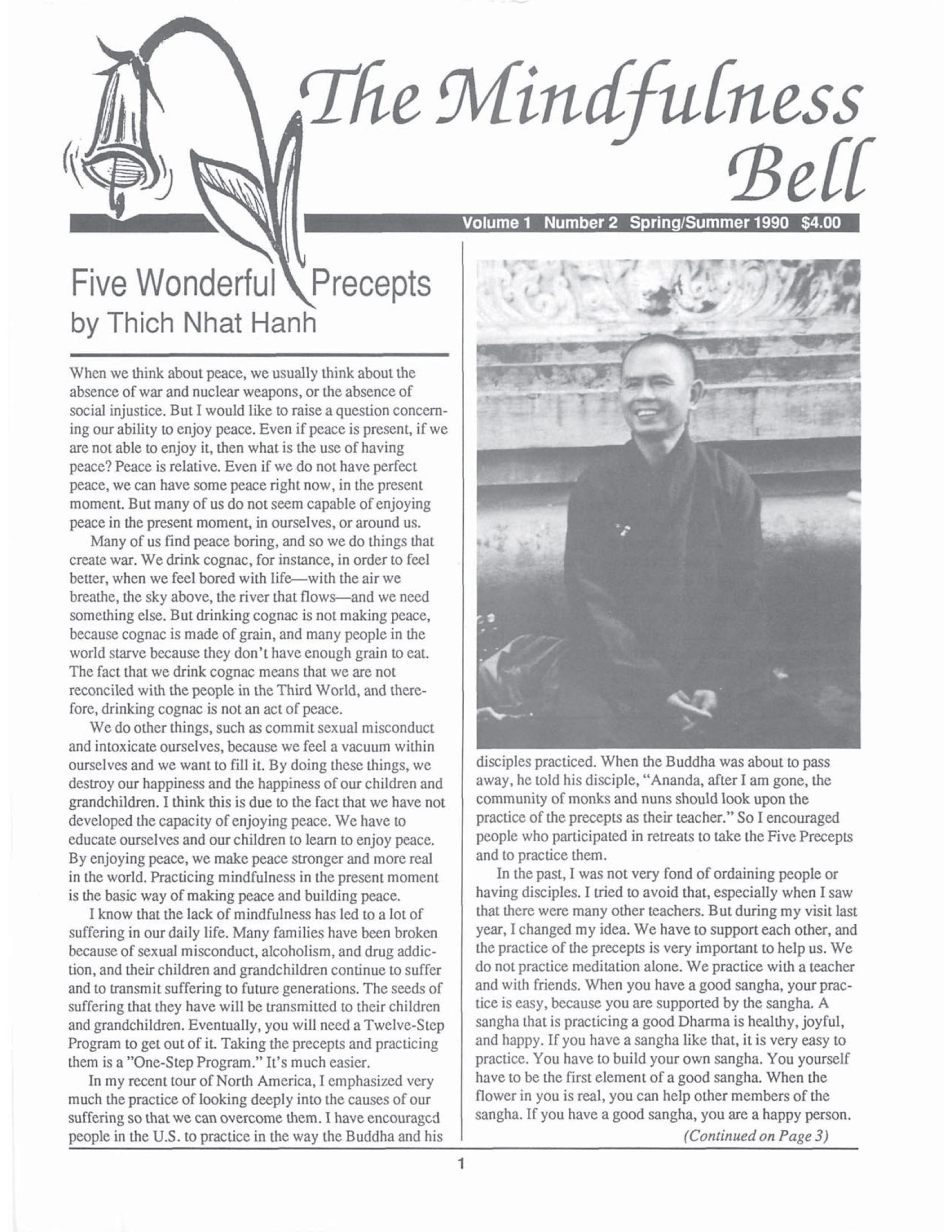By Christopher Reed
When we think about freedom we often think about freedom from certain things. We are more familiar with restriction than we are with permission. There are of course many reasons for this, both culturally and personally. What it means is that when we first encounter the precepts we think of them as restraints, limiting the things we can do. I think that, given the tendency we have to rebel against restriction,
By Christopher Reed
When we think about freedom we often think about freedom from certain things. We are more familiar with restriction than we are with permission. There are of course many reasons for this, both culturally and personally. What it means is that when we first encounter the precepts we think of them as restraints, limiting the things we can do. I think that, given the tendency we have to rebel against restriction, it might be useful, it may even be more accurate, if we look at the precepts in a slightly different way. It may also help us to understand how the Five Precepts are really an implicit expression of the whole of the teachings of the Dharma.
So instead of "I undertake the practice of refraining from harming or killing other beings," "I undertake the practice of cultivating boundless compassion."
Instead of "I undertake the practice of refraining from stealing, from taking that which has not been given freely," "I undertake the practice of cultivating generosity."
Instead of "I undertake the practice of refraining from sexual misconduct," "I undertake the practice of cultivating awareness (appreciation) of the extraordinary power of passion--and through that awareness, of acting skillfully."
Instead of "I undertake the practice of refraining from lying and back-biting," "I undertake the practice of cultivating awareness (appreciation) of the extraordinary power of speech--and through that awareness, of speaking skillfully ."
Instead of "I undertake the practice of refraining from using intoxicants," "I undertake the practice of cultivating awareness (appreciation) of the extraordinary power of the body--and through that awareness, of living skillfully."
If I understand the precepts as an invitation to open up to possibilities rather than as a set of rules by which I restrict myself, then I also see them, much more clearly, as a way of defining my relationships in the world. We learn that the practice of the Dharma has a great deal to do with under standing the causal relationships between things. In developing that understanding it is essential that we recognize our potential to fulfill the extraordinary promise of relationship in the world. The negative, the rule, the restraint, takes away the recognition of our own power to grow. We heal the wounds of a Puritan tradition, of restrictions which were often understood as invalidation, by undertaking the precepts as a practice towards something new and wonderful rather than away from things which we may even empower by our very denial of them.
Christopher Reed teaches meditation in Venice, California.

